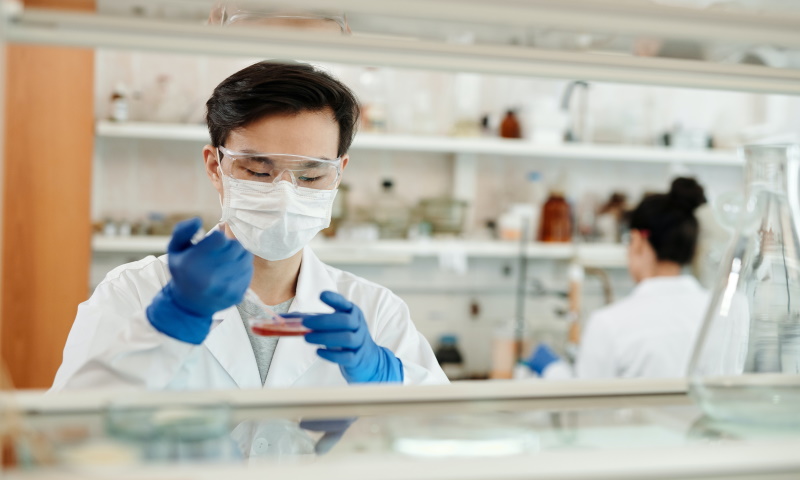Are you already working in a medicine or medical bioscience-based role and are looking to up-skill? Do you have you past-experience of the medical sector and would like to return to education? Are you looking to increase your specialisation or change your study direction? Would you like to advance to Higher Education but are worried that your lack of qualifications is a barrier? If you answered yes to any of those questions, and are aged 19 or over, then we have the perfect course to help you achieve your goals.
The Level 3 Access to HE Diploma in Medical Biosciences is a one-year qualification designed to give you a direct route into Higher Education. Whether that be to study for a Bachelor's Degree, or Higher National Diploma, in a health-related subject.
There are two study pathways you can follow, each leading to specialisation in specific fields of medicine and bioscience. The pathways, and the areas they cover, are as follows:
- Pathway 1: Biomedicine, biochemistry, forensic science, pharmacy, microbiology, paramedical science, dietetics.
- Pathway 2: Medicine, dentistry, radiography, dental hygiene, optometry, veterinary science.
On this course you will develop your knowledge of the theory, principles, and practices of a variety of medical sectors that your chosen pathway could open up to you in the future. You will study a number of topics essential to a career in your chosen field, and you will also gain applied knowledge in biology, chemistry, physics, and maths.
For a detailed explanation of the credit modules for each pathway, please scroll down to our What modules will you do? section.
More than just industry-specific learning, the Level 3 Access to HE Diploma will also teach you educational skills and study tools, in order to further help you in your progression to Higher Education and university. These skills include report writing, research skills, communication skills, arithmetic skills for health studies, using information technology, and examination skills designed to help you prepare for, and succeed in, exam situations.
What experience and skills will you gain?
Both pathways require you to accrue a total of 60 credits from the respective study units. The study units for each pathway are listed below, with their respective credit values listed in brackets.
PATHWAY 1: BIOMEDICINE (total of 60 credits required)
Study skills (15 credits)
- Finding and reading information (3)
- Examination skills (3)
- Reading and comprehension of scientific writing (3)
- Report writing (3)
- Note-taking and note-making (3)
Biology (21 credits)
- Cells (3)
- The cardiovascular system (3)
- The reproductive system (3)
- Human tissues and systems (3)
- The endocrine systems (3)
- Homeostasis and controlling factors in the body (3)
- Blood (3)
Chemistry (21 credits)
- Amount (Mole) of substance (3)
- The chemistry of aqueous solutions (3)
- Chemical kinetics (3)
- Matter: particles and formulae (3)
- The chemistry of organic compounds (6)
- Biological chemistry (3)
Mathematics (3 credits)
- Algebra (3)
PATHWAY 2: MEDICINE (Total of 60 credits required)
- Study skills (15 credits)
- Finding and reading information (3)
- Examination skills (3)
- Reading and comprehension of scientific writing (3)
- Report writing (3)
- Note-taking and note-making (3)
Biology (18 credits)
- Cells (3)
- The cardiovascular system (3)
- The reproductive system (3)
- Human tissues and systems (3)
- The endocrine systems (3)
- Homeostasis and controlling factors in the body (3)
Chemistry (18 credits)
- Amount (Mole) of substance (3)
- The chemistry of aqueous solutions (3)
- Chemical kinetics (3)
- Matter: particles and formulae (3)
- The chemistry of organic compounds (6)
Mathematics and Physics (9 credits)
- Algebra (3)
- Atomic physics
- Medical imaging (3)




